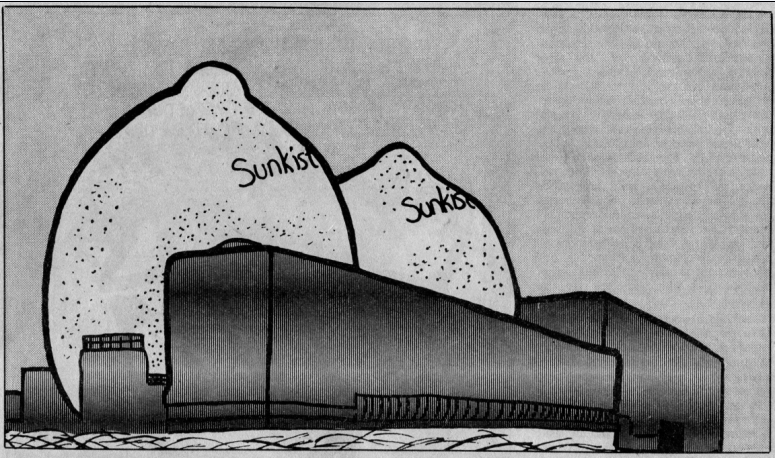Secret transcripts leaked
It’s About Times / January-February 1985
 On January 10, KRON-TV (San Francisco channel 4) released a three-part confidential transcript it had obtained of a closed-door 1984 Nuclear Regulatory Commission (NRC) meeting at which key decisions were made on the fate of the Diablo Canyon nuclear power plant. The 235-page document contains revelations about the agency’s license review process, and provides evidence that the commissioners allowed their concern for Pacific Gas and Electric Company’s profits to outweigh consideration of the public’s health and safety.
On January 10, KRON-TV (San Francisco channel 4) released a three-part confidential transcript it had obtained of a closed-door 1984 Nuclear Regulatory Commission (NRC) meeting at which key decisions were made on the fate of the Diablo Canyon nuclear power plant. The 235-page document contains revelations about the agency’s license review process, and provides evidence that the commissioners allowed their concern for Pacific Gas and Electric Company’s profits to outweigh consideration of the public’s health and safety.
The transcripts are the same ones that the Mothers for Peace, the legal intervenors against Diablo, tried to have presented as evidence in their suit to stop the plant. The Mothers contended that the transcripts would show that the NRC ignored advice from its own lawyers that the effect of an earthquake on the emergency evacuation plan was important enough to justify a public hearing before licensing. But the NRC refused to release the documents, and the US Court of Appeals hearing the case ruled that the NRC’s decision — that the emergency response plan was flexible enough to deal with an earthquake – was “reasonable.”
The transcripts also show the commissioners trying to work .out a line of defense they could use to justify their decision not to delay further operations at the S5.3 billion plant. At one point, according to the transcripts, Commissioner James Asselstine told the others he thought they were “working backwards” — that they already had decided, for reasons that had no basis in fact, to allow the plant to proceed, and were trying to find a legally sound way to justify that decision.
The issue before the commission at the closed door meeting was whether or not to include in its review the possibility that an earthquake could impede evacuation of the area around the plant after an accidental release of radiation unrelated to the quake. Current evacuation plans do not include provisions for the off-site effects of a quake — fallen bridges, impassable roads, etc. — on emergency evacuation.
The Mothers for Peace have demanded a hearing on the matter, but the NRC has ruled that the possibility of an earthquake occurring at the same time as an unrelated radiation leak is so insignificant that it need not be considered. Yet according to NRC regulations, all natural disasters — including earthquakes — must be considered as potential problems in evacuation.
In the course of the meeting, according to the transcripts, the commissioners acknowledged that the only factual basis for making that assertion is a 1981 report done by PG&E, the plant’s owner and the company that once tried to hide the existence of the Hosgri fault 2 1/2 miles from the Diablo site. Chairman Nunzio Palladino is also quoted as saying that a major reason he opposes holding a hearing is that it would further delay the opening of the plant — potentially “penalizing” the utility. By law, the commission is not supposed to consider the effects of its actions on the schedule of the plant or the finances of the license applicant.
The transcripts also show that the commission had originally intended to require PG&E to include off-site earthquake effects in its emergency response plan, but reversed itself after hearing PG&E’s private, “off-the-record” report.
Throughout the 235-page transcripts, Asselstine is the only commissioner who even bothers to ask what harm could come to the public if the unlikely event were to occur. Virtually all the discussion recorded in the transcripts centered on how the commission could avoid legal liability without forcing a new delay in the plant.
When KRON-TV interviewed Asselstine he said the NRC “relied on information that was clearly improper.” When asked if they had “run roughshod over the ‘facts,” he replied, “I think that’s a fair statement, yes.”
In its news story KRON suggested that the commission’s action might have violated the law. The Mothers for Peace think so too, and with this new information have filed again to halt Diablo’s operation. .
— Tim Redmond IAT staff
